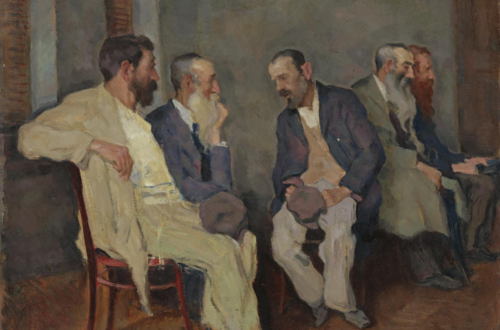What exactly do we mean by ‘fake news’? There are two definitions being used at the moment and I think knowing what they are will clear up some confusion, a confusion that leads to unnecessary arguments.
According to some, ‘fake news’ refers to a claim that turns out to be false. The term ‘news’ is taken to be synonymous with assertions about the world. If I told you that I am 5 feet tall and live in Bermuda, I would be saying something false, the ‘news’ of my height and location would be ‘fake’. On this view, anyone can be guilty of fake news. Those who hold this view can accuse non-journalists, such as government officials, of committing fake news.
According to others, ‘fake news’ refers to any person working in journalism or a journalistic news organization who is not really presenting the news. Instead, the journalist or organization is participating in propaganda. Since no propaganda is news, any propaganda that identifies as ‘news’ is ‘fake news’. In contrast to the first view, on this view, no one who is not working in journalism can commit fake news. Similarly to the first view, such ‘reporting’ may contain false claims, but fake news is not limited to those false claims. It may include presenting facts accurately but incorporating them into a biased narrative in order to show some person in a consistently poor or good light.
On the former view, ‘news’ is taken merely to mean an assertion of some unspecified kind. When anyone utters an assertive sentence, that person claims that what they are saying is objectively true. Moreover, the speaker also indicates that he or she believes what they are saying and intends to inform or persuade the person he or she is speaking with to agree. The kind of assertion in question is an assertion about some fact, event, or state of affairs in the world.
On the latter view, ‘news’ is taken to mean the function of the person or organization in question. A reporter’s job (or role or function) is to report facts, events, or states of affairs in the world. On this view, a news reporter is obliged to report such things as objectively as possible. ‘Fake’ is taken to mean that the reporter or organization does not qualify as a ‘news’ reporter or organization. The reason for the disqualification is that the reporter does not attempt to report objectively; instead, the reporter attempts to convince his or her listener to agree with her opinion.
Neither kinds of fake news are very helpful to a civil society. In regards to making false claims, telling untruths (intentionally or not) is bad. Telling untruths while knowing that they are untruths is also immoral. In regards to the other kind, unchecked bias in reporting is bad because news reporting should aim at objectivity and fairness. Not aiming at objectivity and fairness in reporting is contrary to the professional standards of the Society of Professional Journalists for good reason. There is a high value to fair minded reporting in a society dependent for good governance on the dissemination of information. Unfair reporting damages the electorate’s ability to weigh arguments, consider perspectives of those with whom they disagree, and make informed choices about those they may vote for.




